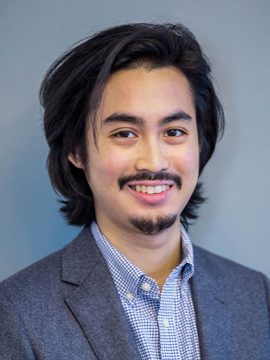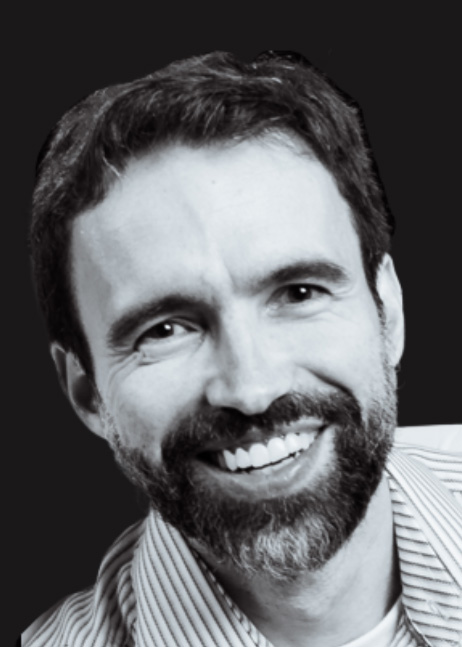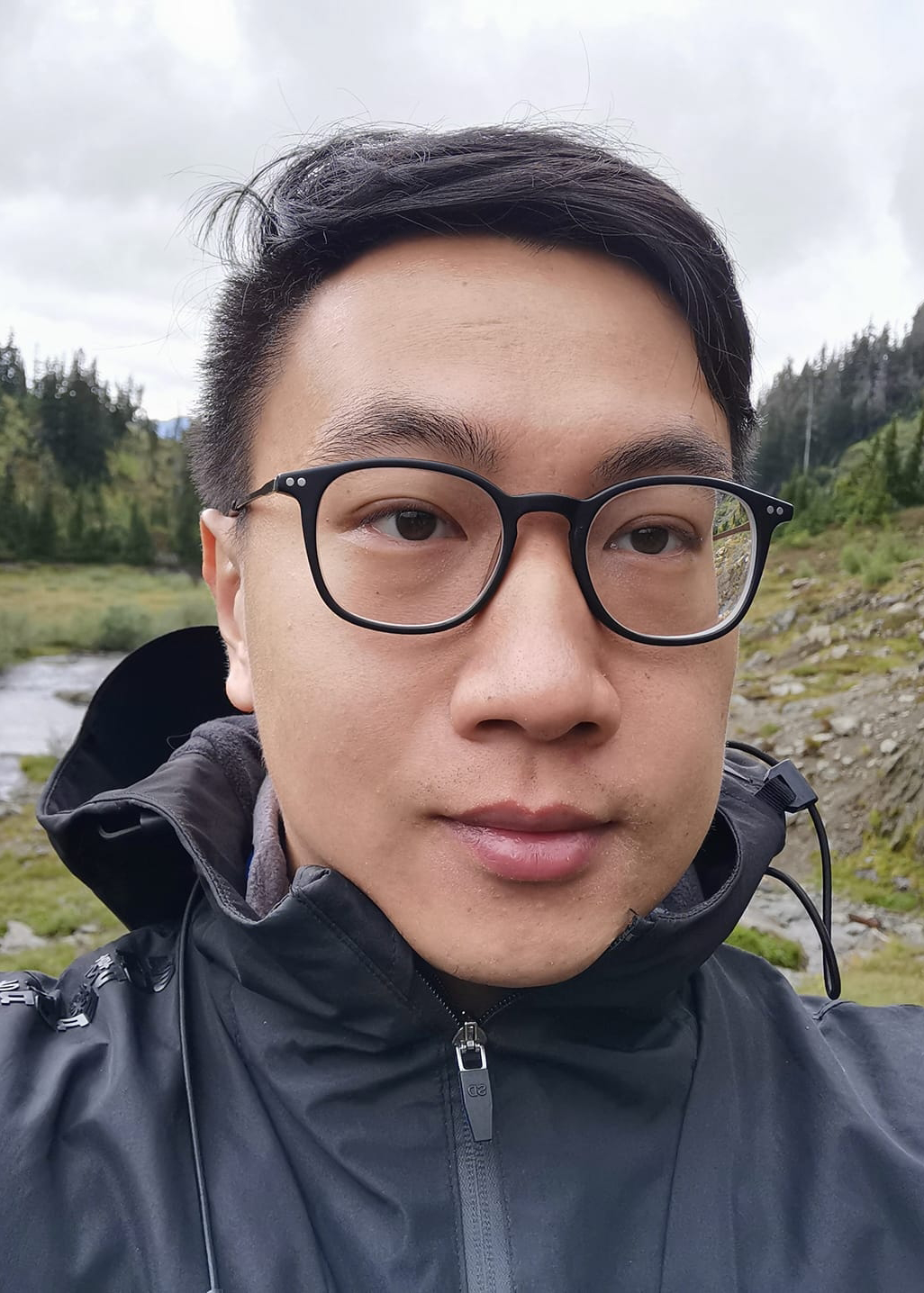Victor Ngo

Why did you choose your program at UBC and what did you enjoy most about it?
I started my UBC studies enrolled in various first-year science courses. However, by the end of the first semester, I felt unmotivated as I struggled to understand the greater purpose of my education. After failing first year chemistry, I decided to consider an Arts degree. I enrolled in Dr. Tina Loo’s Global Environmental History course. The course was a watershed moment for me, where I eagerly awaited every lecture to learn about pressing issues like climate change, agriculture, energy, and cities. My mind buzzed with excitement and creativity as I hungered for a worldly perspective. I turned to geography and urban studies to reconcile my deep concern for the welfare of the world and to better understand the importance of sustainable development.
What were some of your most meaningful experiences at UBC?
In the summer of 2013, I participated in a Global Seminar course with Dr. Henry Yu where I travelled to Hong Kong and completed a comparative study of Vancouver and Hong Kong through the lens of historical migration and city planning. The highlight of the course was co-creating a documentary with my classmates on neighbourhood revitalization in Vancouver’s Chinatown. We explored how new nightlife options in Chinatown contributed to neighbourhood culture, heritage preservation, and economic development in a multicultural city. I was happy to learn that our documentary was selected in 2014 to be screened at Mʼgoi/Do Jeh: Sites, Rites and Gratitude, an exhibition hosted by Centre A, the Vancouver International Centre for Contemporary Asian Art.
What choices did you make at UBC that contributed to your career success / journey?
Joining the Arts Co-op Program was one of the top choices I made at UBC that contributed to my career success. One of the main reasons I joined was to gain work experience in my field of study and see how my geography degree could apply in the workplace. Having a strong set of experience before you graduate sets the foundation for career success and is absolutely the best thing you can do for yourself. For example, my last co-op work term was with the City of Vancouver, where I had the opportunity to work on initiatives to make Vancouver the greenest city in the world, including implementing a water conservation program as part of the City’s Greenest City Action Plan. This work experience eventually led to an undergraduate research assistantship position with Dr. Maged Senbel in the UBC School of Community and Regional Planning, where I researched the potential of digital and social media to mobilize people towards climate change action.
What do you like about your current job and what do you find challenging? How does it relate to your degree?
I am transportation planner with WATT Consulting Group, where I advise clients on integrated mobility solutions. I currently lead and support transportation planning and engineering projects in urban, rural, and Indigenous communities throughout Western Canada. My clients include local and regional governments, transportation and housing agencies, health authorities, real estate developers, and architects. Collectively, my work helps to promote and support more sustainable, healthier, and safer modes of travel, including walking, rolling, cycling, and transit. In addition, I am a research associate at the UBC School of Population and Public Health, where I conduct research on transportation infrastructure and urban development issues. My work has been published in leading scientific journals such as Transportation Research and Preventive Medicine.
I like my current jobs because I have the opportunity to make meaningful change in communities. My Arts degree provided me with a broad understanding of how cities function, and I draw on this knowledge on a daily basis. In addition, I regularly use the skills I gained from my courses in Geographic Information Science (GIS) and cartography to conduct spatial analysis and create maps of the various communities I work in, using a variety of data such as land use, transportation, and census information.
From your experience, what has been the value of having an Arts degree?
As a geographer, I have gained an appreciation for multiple ways of understanding the world. An Arts degree provides students with a broad perspective on societal issues and equips them with the ability to forge intellectual bridges and identify points for meaningful and positive intervention.
Are there any other achievements or activities you would like to highlight?
I was recently named a Local Pathways Fellow with the United Nations Sustainable Development Solutions Network in 2018, where I represent Canada across 30 participating countries. The goal of the fellowship is to empower young people to champion local pathways for sustainable development and implement Goal 11 of the Sustainable Development Goals to make cities and human settlements inclusive, safe, resilient and sustainable. I plan on working to advance public understanding about the importance of climate change adaptation with the City of Vancouver.
After I finished my Arts degree, I started volunteering with the Vancouver Foundation in 2013 on the Youth Vital Signs Leadership Council. I co-directed a youth-led research and public opinion initiative that highlighted the experiences of young people aged 15 to 24 living in the Vancouver region. We successfully reached out to more than 3,500 young people, creating a report card to grade youth-specific issues and make recommendations to decision-makers for positive change on key issues such as housing, education, poverty, and civic participation. My Arts degree was fundamental in helping me understand the interrelationships and importance of these issues for young people in a rapidly growing region.
What advice would you give to students and alumni interested in breaking into your industry?
There are so many opportunities at UBC to get involved and start a career in sustainability. I recommend students take research-oriented courses, directed studies, and community-based experiential learning courses in their departments that allow them to apply the knowledge they learn from the classroom in the real-world in practical and meaningful ways.
Victor Ngo



Why did you choose your program at UBC and what did you enjoy most about it?
I started my UBC studies enrolled in various first-year science courses. However, by the end of the first semester, I felt unmotivated as I struggled to understand the greater purpose of my education. After failing first year chemistry, I decided to consider an Arts degree. I enrolled in Dr. Tina Loo’s Global Environmental History course. The course was a watershed moment for me, where I eagerly awaited every lecture to learn about pressing issues like climate change, agriculture, energy, and cities. My mind buzzed with excitement and creativity as I hungered for a worldly perspective. I turned to geography and urban studies to reconcile my deep concern for the welfare of the world and to better understand the importance of sustainable development.
What were some of your most meaningful experiences at UBC?
In the summer of 2013, I participated in a Global Seminar course with Dr. Henry Yu where I travelled to Hong Kong and completed a comparative study of Vancouver and Hong Kong through the lens of historical migration and city planning. The highlight of the course was co-creating a documentary with my classmates on neighbourhood revitalization in Vancouver’s Chinatown. We explored how new nightlife options in Chinatown contributed to neighbourhood culture, heritage preservation, and economic development in a multicultural city. I was happy to learn that our documentary was selected in 2014 to be screened at Mʼgoi/Do Jeh: Sites, Rites and Gratitude, an exhibition hosted by Centre A, the Vancouver International Centre for Contemporary Asian Art.
What choices did you make at UBC that contributed to your career success / journey?
Joining the Arts Co-op Program was one of the top choices I made at UBC that contributed to my career success. One of the main reasons I joined was to gain work experience in my field of study and see how my geography degree could apply in the workplace. Having a strong set of experience before you graduate sets the foundation for career success and is absolutely the best thing you can do for yourself. For example, my last co-op work term was with the City of Vancouver, where I had the opportunity to work on initiatives to make Vancouver the greenest city in the world, including implementing a water conservation program as part of the City’s Greenest City Action Plan. This work experience eventually led to an undergraduate research assistantship position with Dr. Maged Senbel in the UBC School of Community and Regional Planning, where I researched the potential of digital and social media to mobilize people towards climate change action.
What do you like about your current job and what do you find challenging? How does it relate to your degree?
I am transportation planner with WATT Consulting Group, where I advise clients on integrated mobility solutions. I currently lead and support transportation planning and engineering projects in urban, rural, and Indigenous communities throughout Western Canada. My clients include local and regional governments, transportation and housing agencies, health authorities, real estate developers, and architects. Collectively, my work helps to promote and support more sustainable, healthier, and safer modes of travel, including walking, rolling, cycling, and transit. In addition, I am a research associate at the UBC School of Population and Public Health, where I conduct research on transportation infrastructure and urban development issues. My work has been published in leading scientific journals such as Transportation Research and Preventive Medicine.
I like my current jobs because I have the opportunity to make meaningful change in communities. My Arts degree provided me with a broad understanding of how cities function, and I draw on this knowledge on a daily basis. In addition, I regularly use the skills I gained from my courses in Geographic Information Science (GIS) and cartography to conduct spatial analysis and create maps of the various communities I work in, using a variety of data such as land use, transportation, and census information.
From your experience, what has been the value of having an Arts degree?
As a geographer, I have gained an appreciation for multiple ways of understanding the world. An Arts degree provides students with a broad perspective on societal issues and equips them with the ability to forge intellectual bridges and identify points for meaningful and positive intervention.
Are there any other achievements or activities you would like to highlight?
I was recently named a Local Pathways Fellow with the United Nations Sustainable Development Solutions Network in 2018, where I represent Canada across 30 participating countries. The goal of the fellowship is to empower young people to champion local pathways for sustainable development and implement Goal 11 of the Sustainable Development Goals to make cities and human settlements inclusive, safe, resilient and sustainable. I plan on working to advance public understanding about the importance of climate change adaptation with the City of Vancouver.
After I finished my Arts degree, I started volunteering with the Vancouver Foundation in 2013 on the Youth Vital Signs Leadership Council. I co-directed a youth-led research and public opinion initiative that highlighted the experiences of young people aged 15 to 24 living in the Vancouver region. We successfully reached out to more than 3,500 young people, creating a report card to grade youth-specific issues and make recommendations to decision-makers for positive change on key issues such as housing, education, poverty, and civic participation. My Arts degree was fundamental in helping me understand the interrelationships and importance of these issues for young people in a rapidly growing region.
What advice would you give to students and alumni interested in breaking into your industry?
There are so many opportunities at UBC to get involved and start a career in sustainability. I recommend students take research-oriented courses, directed studies, and community-based experiential learning courses in their departments that allow them to apply the knowledge they learn from the classroom in the real-world in practical and meaningful ways.



